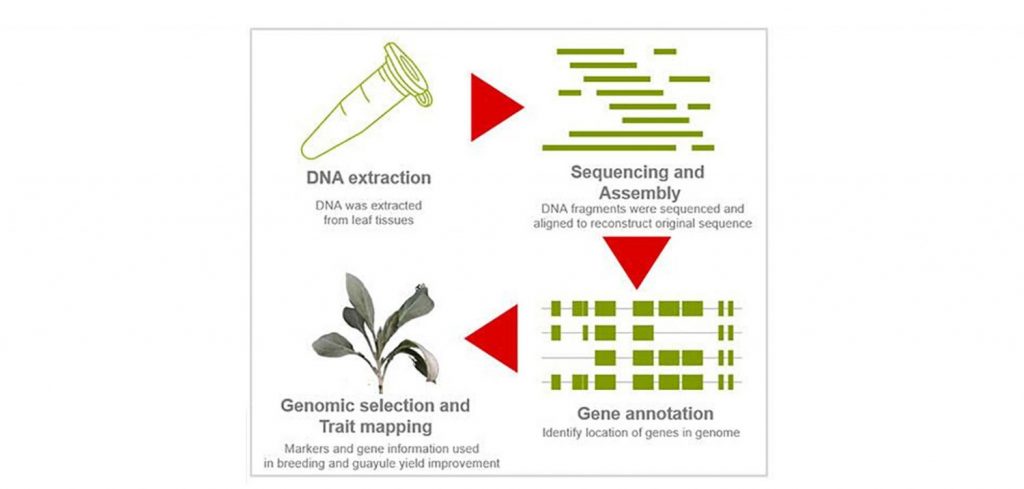Bridgestone has released the results of its four-year collaboration with genomic big data solutions company NRGene, which aimed to further advance the commercialization of guayule, an alternative to natural rubber, as part of the effort to diversify its sources of raw materials. The combined effort focused on analyzing DNA to allow more efficient use of inherent genetic diversity to breed highly productive varieties of guayule, an alternative to natural rubber.
Native to the desert regions of the southwestern USA and northern Mexico, guayule is a shrub capable of producing natural rubber and can grow on marginal farmland with minimal fertilizer inputs. It has the physical and genetic characteristics of a desert plant, successfully tolerating arid environments and making its demand for water lower than other commercial crops grown in the region. This is important since dwindling water resources in the Southwest USA are demanding that agriculture find ways to reduce water usage and guayule could be a solution.
Utilizing NRGene’s DeNovoMagic system, scientists at Bridgestone and NRGene say they have successfully assembled a specific guayule genome. This achievement provided a complete description of the genome sequence and all its genes, allowing for the use of additional genomic diversity in the identification of the genetic basis for important traits such as rubber percentage.
“The collaboration between Bridgestone and NRGene will provide important advances for the future of the automotive and rubber industries,” said William Niaura, director, innovation, Bridgestone Americas. “The combination of our previous work with the sequencing and assembly of the hevea genome and our current work with guayule uniquely positions Bridgestone to utilize these resources for comparative genetic analysis of the rubber biosynthetic pathways and become a leader in the genetics and improvement of rubber-producing plants.”



